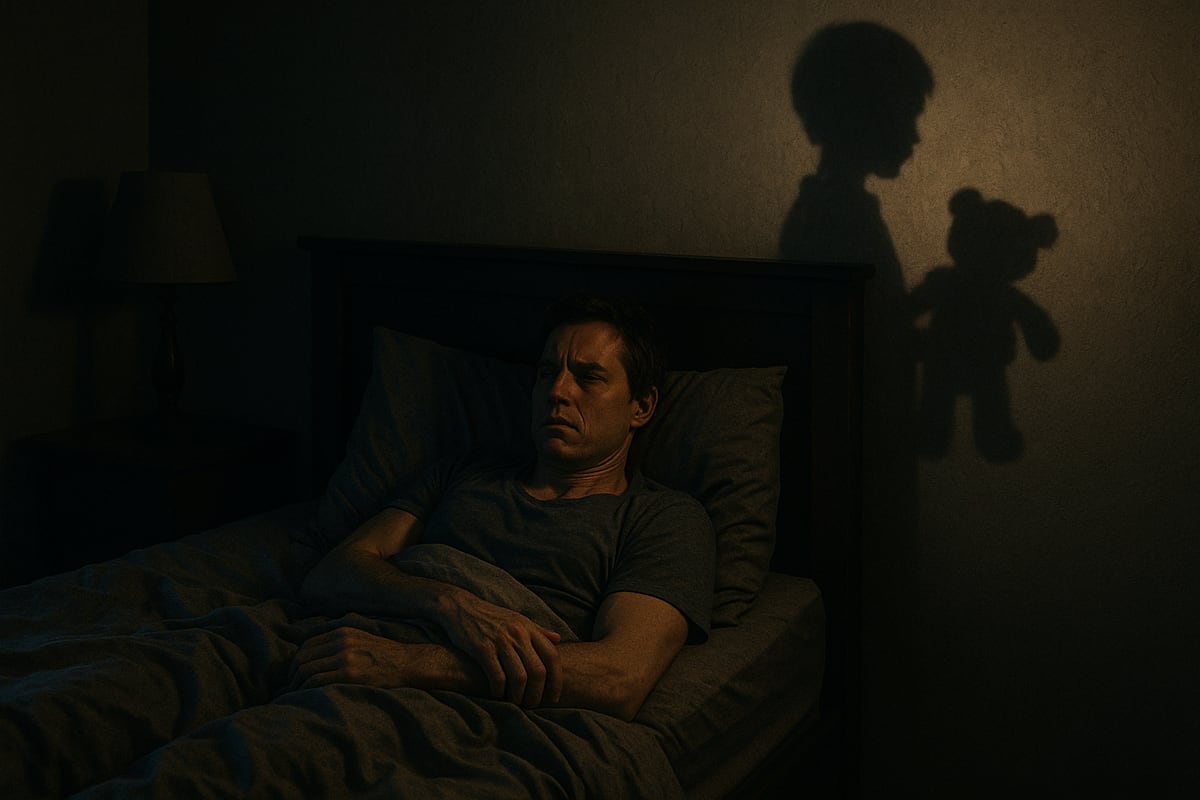TLDR: Childhood trauma significantly affects sleep quality, leading to long-term health issues. Survivors may struggle with deep sleep due to fear and anxiety. Seeking professional help, considering sleep aids, and open communication with partners are crucial steps for healing.
____________________________
Sleep is a fundamental aspect of our health, yet it is often compromised by experiences of childhood trauma. Survivors of child abuse frequently face challenges in achieving deep, restorative sleep, which can have profound effects on their mental and physical well-being. This blog post explores the relationship between childhood trauma and sleep, offering insights and suggestions for those affected.
Understanding the Connection Between Trauma and Sleep
Many survivors of child abuse report lifelong difficulties with sleep. For instance, one individual shared their experience of learning to sleep half awake from a young age, a coping mechanism developed to remain alert to potential threats. This behavior often stems from traumatic experiences, such as being taken from one’s bed and exposed to inappropriate content at a young age. Such incidents can instill a deep-seated fear of vulnerability during sleep, leading to chronic sleep disturbances.
The Psychological Impact of Sleep Issues
The inability to achieve deep sleep can exacerbate mental health issues, including depression and anxiety. The brain requires restorative sleep to function optimally, and when this is disrupted, it can lead to a cycle of worsening mental health. Survivors may find themselves trapped in a pattern where their trauma affects their sleep, and their lack of sleep further impacts their mental health.
Seeking Professional Help
For those who have experienced childhood trauma, it is essential to recognize the importance of addressing sleep issues. Consulting with healthcare professionals can provide valuable insights and treatment options. Some survivors may benefit from sleep aids, but caution is advised, particularly with medications like benzodiazepines, which can have dangerous side effects.
Exploring Natural Supplements
In addition to prescription medications, there are natural supplements that may aid in improving sleep quality. These alternatives can be a safer option for some individuals, but it is crucial to discuss any new supplements with a healthcare provider to ensure they are appropriate for your specific situation.
The Importance of a Safe Sleep Environment
Creating a safe and comfortable sleep environment is vital for healing. For some survivors, this may mean sleeping alone for a period of time to foster a sense of security. Locking the door can provide an additional layer of comfort, allowing individuals to feel more in control of their surroundings.
Communicating with Partners
If you are in a relationship, it is important to communicate openly with your partner about your sleep needs and the impact of your past experiences. This conversation can help prevent misunderstandings and ensure that both partners feel supported. For instance, cuddling before sleep can provide comfort, but it may be beneficial to part ways before falling asleep to maintain a sense of safety.
Conclusion
The journey to healing from childhood trauma is complex and often intertwined with sleep issues. Recognizing the impact of trauma on sleep is the first step toward recovery. By seeking professional help, exploring treatment options, and fostering open communication with loved ones, survivors can work towards achieving the deep, restorative sleep necessary for healing and overall well-being. Remember, you are not alone in this journey, and there are resources available to support you.
